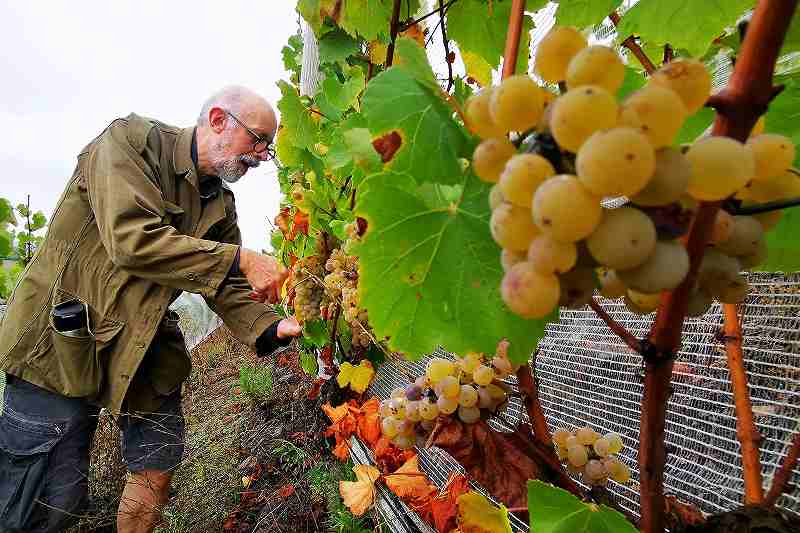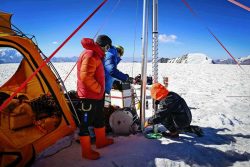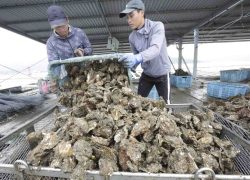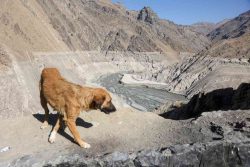
A volunteer grape picker cuts a bunch of grapes from vines during a harvest at a vineyard grown on the slopes of a coal spoil tip in Haillicourt, France, on Sept. 24
17:02 JST, October 26, 2022
HAILLICOURT, France (Reuters) — Forget hiking or skiing, the latest trend on the spoil heaps that litter northern France’s deindustrialized landscape is wine-growing, made possible by a warming climate.
The closure of mines in the region’s coal-basin, which stretches dozens of kilometers west from the Belgian border, exacerbated the area’s plunge into economic decline in the late 20th century.
Nowadays, the heaps are central to sustainable tourism initiatives and a symbol of the rebirth of the Pas-de-Calais region.
Vines were planted a decade ago and in 2018 the first bottles of “Charbonnay” wine — a word play on the famous chardonnay grape variety and “charbon,” French for coal — were sold, mainly to locals and small stores.
With this year’s heat — less searing in the north than in southern France — production should triple versus the 10 hectoliters produced in 2021, even if it remains a tiny drop compared with the 45.6 million hectoliters expected nationally.
Wine-maker Olivier Pucek said the climate in a part of France considered by many French to be dreary and desolate had held back vine growing, but that things were changing.
“The summer heat has become more compatible with working the vineyard,” he told Reuters on a spoil heap in Haillicourt, an hour’s drive south of the port city of Calais, as people harvested the grapes by hand.
Spoil heaps, also called “boney piles” or “slag heaps,” are towering piles of waste material removed during mining.
A second vineyard has been planted in a nearby town and in neighboring Belgium, near the town of Charleroi, a vineyard planted in 2019 should yield its first bottles next year.
A hectoliter is the equivalent of 100 liters, or 133 standard wine bottles.
Ten years ago, UNESCO awarded the mining basin World Heritage status for symbolizing Europe’s industrial heritage.
“I’m sure it would please the people who worked in the mines that we can produce wine — and good wine at that — on these spoil tips,” said Henri Jammet, a second winemaker.
Top Articles in Science & Nature
-

Japan Institute to Use Domestic Commercial Optical Lattice Clock to Set Japan Standard Time
-

iPS Treatments Pass Key Milestone, but Broader Applications Far from Guaranteed
-

Record 700 Startups to Gather at SusHi Tech Tokyo in April; Event Will Center on Themes Like Artificial Intelligence and Robotics
-

iPS Cell Products for Parkinson’s, Heart Disease OK’d for Commercialization by Japan Health Ministry Panel
-

Japan to Ban Use of Power Banks on Airplanes
JN ACCESS RANKING
-

Producer Behind Pop Group XG Arrested for Cocaine Possession
-

Japan PM Takaichi’s Cabinet Resigns en Masse
-

Japan Institute to Use Domestic Commercial Optical Lattice Clock to Set Japan Standard Time
-

Man Infected with Measles Reportedly Dined at Restaurant in Tokyo Station
-

Israeli Ambassador to Japan Speaks about Japan’s Role in the Reconstruction of Gaza
























